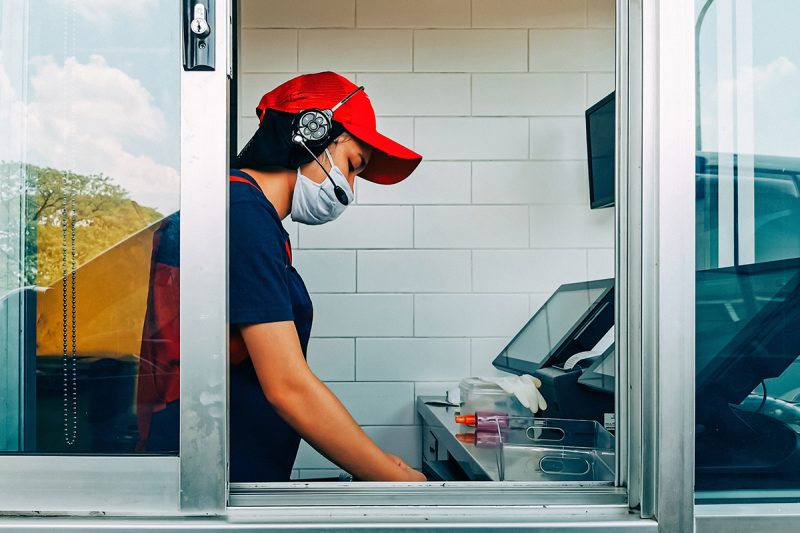Can Essential and Front Line Workers Build Permanent Gains from the Pandemic?

Often, even with unions, one of the only ways to see real improvements in workplace conditions, especially health and safety, is in response to a disaster. For example, maybe the candle factory in Kentucky threatening workers with their jobs if they didn’t work through the tornado, thus making the company responsible for their deaths, will–maybe–lead to new laws around these issues. There’s a real history of this, even in low unionization states, as the new James Kraft book demonstrates (review by me forthcoming in American Historical Review). Now, COVID was something of a slow motion disaster. But it was a workplace disaster nonetheless. So can workers win the needed reforms to make their jobs safer? In California at least, there’s a real effort to do so. News Hour had a piece on this a couple of weeks ago and it’s worth mentioning here.
Ivette Feliciano:
On a Wednesday afternoon in mid-September, a group of fast-food workers from across the San Francisco Bay area brought a list of demands to the manager of this Jack in the Box in Castro Valley.
Workers here said they needed better COVID-19 health and safety protections.
Ingrid Vilorio:
Whether we are full-time or part-time, we have a right to sick days. And they should pay us for those days. We need to be paid for having to quarantine because of Covid-19.
Ivette Feliciano:
Two days earlier, Ingrid Viloria and two other employees filed a joint complaint to California’s labor law enforcement agencies.
Ingrid Vilorio:
They don’t take our temperature. They don’t give us masks.
Ivette Feliciano:
In the complaint, Vilorio claims when she caught Covid last March she was not paid for the four shifts she missed. California requires employers the size of hers to provide up to 80 hours of Covid-19 related paid sick leave.
Ingrid Vilorio:
It’s frustrating because you have a bad month, you’re sick and on top of that, you don’t get paid.
Ivette Feliciano:
California employs more fast-food workers than any other state. The majority are people of color over 23. They earn some of the lowest wages in the state, an average of $13.27 an hour.
The protest was organized by the Service Employees International Union, or SEIU. Its Fight for 15 and a Union campaign focuses on fast-food employees and other low wage workers. Since the start of the pandemic it has led strikes and actions at more than 200 fast food restaurants across the state, including a 48-day strike at this Mcdonald’s in Oakland that began in May of 2020.
Delia Vargas works there, and participated in the strike. She says at the start of the pandemic, her manager provided workers with masks made of dog diapers and coffee filters.
Delia Vargas:
She said the important thing is to protect yourself. But they never talked to us about what was happening at the store, that infections were spreading. Never.
Ivette Feliciano:
Vargas says workers were encouraged to come into work while sick.
Delia Vargas:
One person who worked the night shift got really sick. And then her coworkers on the night shift got infected. That’s when we realized how serious things were.
Ivette Feliciano:
The franchise owner told local reporters that the store was in full compliance with cod and state-level orders. And he said all claims of workers being asked to wear coffee filters and dog diapers were entirely false. Yet four workers filed a lawsuit in June of 2020, claiming the owner’s quote, “dangerous…and unjustifiable…practices” unquote, had resulted in a Covid-19 outbreak among 11 employees and a worker’s 10-month old baby.
And a report by Physicians for Social Responsibility found infections spread throughout their communities, including two nearby McDonald’s where Vargas and other employees also work.
The owner denied all accusations in his legal filings.
In August of 2020, the workers and the franchise owner announced a settlement. The restaurant agreed to implement new safety and paid sick leave policies and a management-worker committee to ensure compliance with the new measures.
I hardly need to state how important these issues are to making healthy and safe workplaces in America. Which means that even in California, it’s hard and in other states, even harder.


